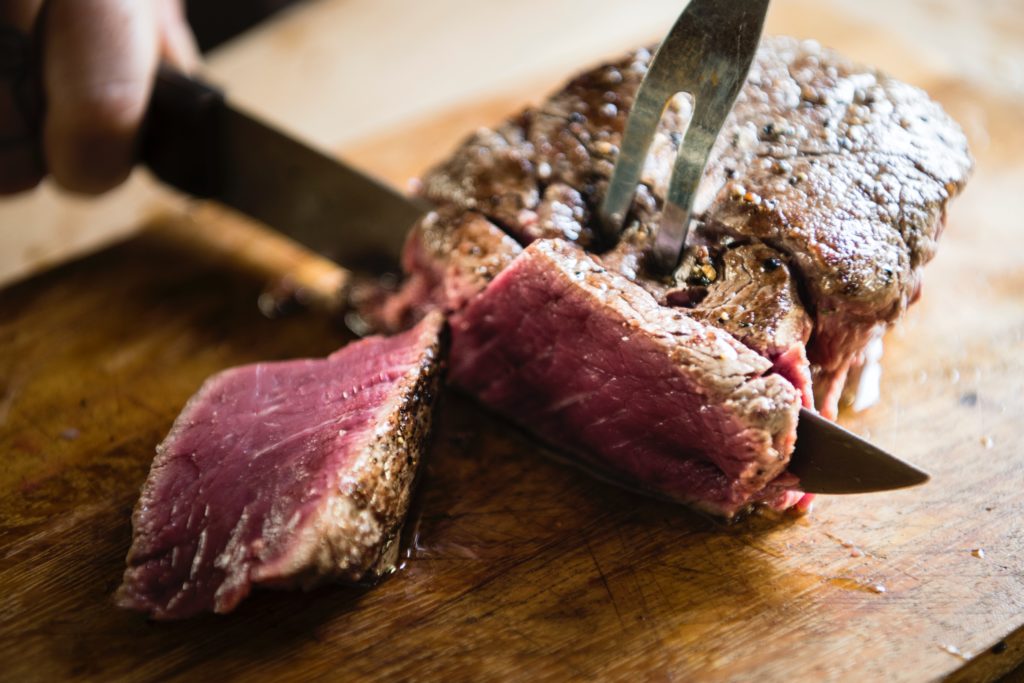More so than ever, professional athletes are paying closer attention to the foods they are putting into their bodies. Elite competitors understand the quality of food they consume directly correlates to their athletic performance. Athletes look to nutrition for a competitive edge, as well as a way to extend the longevity of their career. In this week’s post, we will focus on ways you can maximize your athletic performance and overall health using proper nutrition.
Nutritional Basics

All foods are composed of three macronutrients – proteins, carbohydrates, and fats. Fad diets, such as the ketogenic (high fat) and Atkins (high protein), claim that eating one macronutrient is the best for human health. However, for an athlete to perform at their highest potential they need to find a macronutrient ratio that best suits their sport and maximizes the amount of micronutrients they are consuming. Micronutrients refer to the vitamins and minerals found in food and are essential to human health and athletic recovery. Foods highest in micronutrients include organic fruits and vegetables, nuts, seeds, grass-fed meat, and wild caught fish and shellfish. In general, the best diet for athletes is one rich in diverse vitamins and minerals and has a balanced macronutrient distribution suited to a particular sport.
Different macros for different sports
Based on your activity level, there is a certain balance of carbohydrates, fats, and proteins that will suit you best and enhance your performance.
The power sport athlete – sprinting, weightlifting, discus, football – will function best on a diet high in carbohydrates and protein. These athletes need quick burning fuel, and carbohydrates are the best source of energy for the body to metabolize in high intensity exercises. Power sport athletes will also require adequate post-exercise protein to repair the damage done to muscle tissues.
The endurance athlete – long distance running, swimming, rock climbing, cycling – will function best on a diet high in fats and carbohydrates. Dietary fat is the most energy dense macronutrient, but it is also the slowest to metabolize, making it ideal for endurance athletes who need to fuel their bodies for longer periods of time. Carbohydrates and protein are also important for these athletes as they need to restore muscle glycogen (carbohydrate) stores and repair damaged tissues following exercise.
Following these general guidelines, athletes from each subset should maintain a balanced macronutrient distribution. The endurance runner needs dietary protein to repair their damaged tissues following a long, grueling race, while the power sport athlete needs dietary fats to maintain the health of their cell membranes, brain, and nerves.
Adopt a lifestyle, not a diet
When we exercise and metabolize foods for fuel, metabolic waste products are created causing inflammation in the body. However, post-workout inflammation is not inherently bad and is beneficial to stimulating growth. Nevertheless, if an athlete is eating a pro-inflammatory diet, the compounding effect of exercise, plus poor nutrition, can create a state of chronic inflammation in the body. As a result of athletes continually breaking down their bodies and causing normal post-exercise inflammation, they need to ensure their diets do not cause more inflammation. The goal of an anti-inflammatory lifestyle is to increase the amount of anti-inflammatory omega-3 fatty acids, while decreasing the amount of pro-inflammatory omega-6 fatty acids.

Foods that are high in anti-inflammatory omega-3 fatty acids and lower inflammation levels include grass-fed meat, wild caught fish and shellfish, organic vegetables, fruits, stem tubers and roots (yams and sweet potatoes), nuts, omega-3 seeds (hemp, chia, and flax), and dark chocolate with a cocoa content greater than 85%. These foods are also the richest in micronutrients and should be the focus of any athlete’s diet.
Foods that are high in pro-inflammatory omega-6 fatty acids and cause chronic inflammation in the body include refined sugars and grains, grain flour products, trans fats, alcohol, and refined omega-6 seed oils (corn, safflower, sunflower, and other vegetable oils). Dairy products and nightshade vegetables (white potatoes, eggplants, bell peppers, and tomatoes) may be pro-inflammatory for some athletes, and a food sensitivity test will help to determine if the athlete should be consuming these foods or not. Athletes who decrease their consumption of pro-inflammatory foods, while increasing their amount of anti-inflammatory omega-3 containing foods, will notice an improvement in athletic performance, mental focus, and muscle resiliency.
An excellent resource for anti-inflammatory lifestyle information is Dr. David Seaman’s ‘de-flame diet’.
We hope you enjoyed this week’s blog post on nutrition for athletes. Please reach out if you have any questions!
Post written by Dr. Riley Kulm, DC. Check out Dr. Riley Kulm’s bio here.


